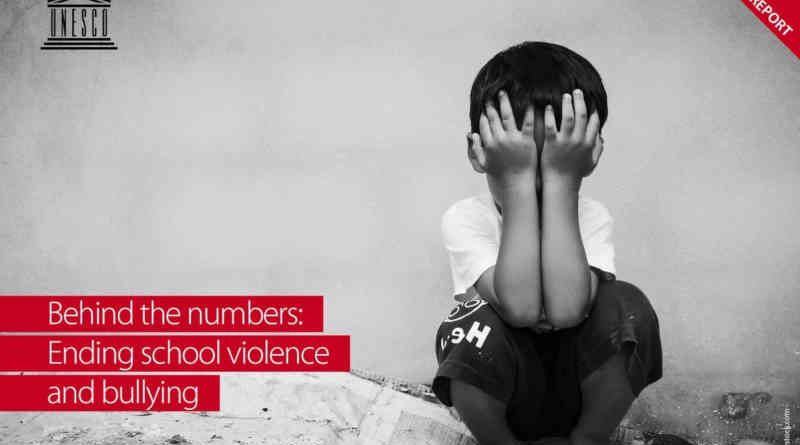Bullying Affects Children’s Mental Health: Report

UNESCO’s report, Behind the numbers: ending school violence and bullying, released at the 2019 Education World Forum in London, reveals that nearly one-in-three boys and girls have been bullied at least once at school over the last month, and a similar proportion have been affected by physical violence.
Overall, according to the report, physical bullying is the biggest problem in most regions, but in North America and Europe, psychological bullying is the most common, followed by sexually related bullying.
The report says physical bullying is more common among boys, while psychological bullying is more prevalent among girls. Meanwhile, online and mobile phone bullying is on the rise.
| Download and Read RMN Publications | ||
| TechWise Today | The Integrity Bulletin | Clean Climate |
| Legal Directions | Young Learner | Real Voter |
Children perceived as different in any way from the norm, are the most likely to be bullied, with physical appearance being the most common cause followed by race, nationality, or skin color.
Bullying must be addressed because it significantly affects children’s mental health, quality of life, and academic achievement, the report suggests.
Frequently bullied children are nearly three times more likely to feel shunned and more than twice as likely to miss school. Their educational outcomes decline, and they are more likely to leave after finishing secondary school.
The UNESCO report is one of the UN educational agency’s contributions to the ‘Safe to Learn’ campaign, an initiative focused on ending violence in schools, so children can learn, thrive and pursue their dreams.
It brings together data from a range of global and regional surveys, covering 144 countries and territories in all regions, yielding the most up-to-date and comprehensive evidence on school violence and bullying.






